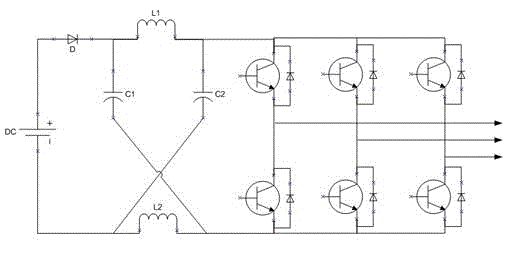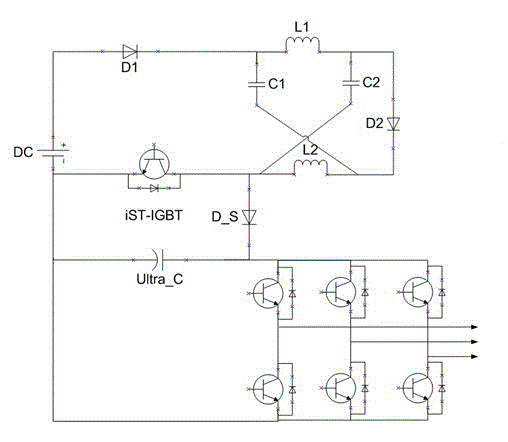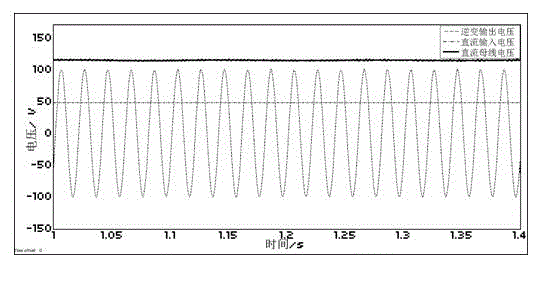Through physical separation-type Z-source inverter with high booster multiple
A technology with high boost multiple and physical separation, applied in output power conversion devices, AC power input conversion to DC power output, electrical components, etc. Problems such as limited multiples
- Summary
- Abstract
- Description
- Claims
- Application Information
AI Technical Summary
Problems solved by technology
Method used
Image
Examples
Embodiment Construction
[0014] Such as figure 2 The straight-through physically separated Z-source inverter with a high boost multiple shown includes a DC voltage source DC, a first blocking diode D1 and a second blocking diode D2, a Z-source impedance network, and a three-phase inverter bridge, The Z source impedance network is composed of the first inductance L1, the second inductance L2, the first capacitor C1, and the second capacitor C2 to form an X-shaped structure. The present invention is characterized in that it also includes a full-control switching device iST-IGBT, a large capacitor ultra_C and a power diode. D_S; the anode of the direct current power supply DC is connected to the anode of the first blocking diode D1, the cathode of the first blocking diode D1 is connected to one end of the first inductor L1 in the Z source impedance network and the positive electrode of the first capacitor C1, and the second resistor The cathode of the off diode D2 is connected to the other end of the fi...
PUM
 Login to View More
Login to View More Abstract
Description
Claims
Application Information
 Login to View More
Login to View More - R&D
- Intellectual Property
- Life Sciences
- Materials
- Tech Scout
- Unparalleled Data Quality
- Higher Quality Content
- 60% Fewer Hallucinations
Browse by: Latest US Patents, China's latest patents, Technical Efficacy Thesaurus, Application Domain, Technology Topic, Popular Technical Reports.
© 2025 PatSnap. All rights reserved.Legal|Privacy policy|Modern Slavery Act Transparency Statement|Sitemap|About US| Contact US: help@patsnap.com



